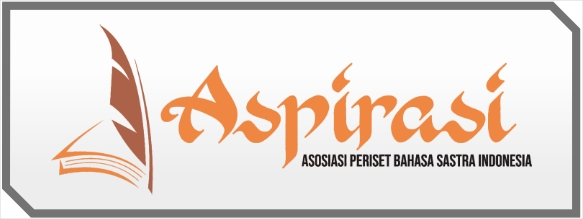Pemanfaatan Teknologi Digital dalam Pembelajaran Konstruktivisme: Meningkatkan Kualitas Pendidikan di Era Digital
DOI:
https://doi.org/10.55606/jurdikbud.v4i1.2838Keywords:
Constructivism, Digital technology, EducationAbstract
Today's technology has had a significant impact in a variety of sectors, including education. Education today is not only done offline in the classroom, but also through interactive and collaborative online classes using a meeting app. The aim of this study is to explore a wide range of digital technologies that can be used in a constructivist-based learning approach to improve the quality of education in the digital age. The main issue in this study is the importance of the use of digital technology in the teaching learning process with a learning approach based on constructivism. The method used in this research is the study of literature or Library reviews, by collecting and analyzing various journals on digital technology, constructivism, and education. The result of this research is that digital technologies integrated into constructivist-based education can help improve the quality and efficiency of education. In conclusion, digital technology has the potential to improve the quality and efficiency of learning constructivism in the digital age, but should be used wisely and responsibly by teachers and pupils.
References
Azizi, M. K., & Shafrizal, A. (2022). Merdeka Belajar Dalam Sudut Pandang Teori Belajar Konstruktivisme dan Pendidikan Agama Islam. Jurnal Pendidikan dan Konseling, 4(4), 796–803.
Dyah Puspitasari, A., & Febrianto, P. T. (2023). Pengaruh Penggunaan Museum Sebagai Model Pembelajaran Out-Class Terhadap Perilaku dan Motivasi Siswa SD di Pesisir Madura. Jurnal Masyarakat Maritim, 7(1), 25–33.
Fitri, Y. (2020). Workshop Inovasi Pembelajaran di Sekolah Dasar SHEs: Conference Series 3 (4) (2020) 1300-1307. https://doi.org/https://doi.org/10.20961/shes.v3i4.55740
Fitria, D., Lestari, M., Aisyah, S., Renita, R., Dasmini, D., & Safrudin, S. (2021). Meta-Analisis Pendekatan Pembelajaran Konstruktivisme dalam Meningkatkan Hasil Belajar Siswa Pada Pembelajaran IPS Sekolah Dasar. Jurnal Simki Economic, 4(2), 192–199. https://doi.org/10.29407/jse.v4i2.65
Gallant, G. M. (2000). Professional Development for Web‐Based Teaching: Overcoming Innocence and Resistance. New Directions for Adult and Continuing Education, 2000(88), 69–78. https://doi.org/10.1002/ace.8807
Hansch, A., Hillers, L., McConachie, K., Newman, C., Schildhauer, T., & Schmidt, P. (2015). Video and Online Learning: Critical Reflections and Findings from the Field. SSRN Electronic Journal. https://doi.org/10.2139/ssrn.2577882
Hartsell, T., & Yuen, S. C. Y. (2006). Video Streaming in Online Learning. AACE Journal, 14(1), 31–34.
Herianto, H., & Lestari, D. P. (2021). Implementasi teori konstruktivisme dalam pembelajaran IPA melalui pemanfaatan bahan ajar elektronik. Jurnal Pembangunan Pendidikan: Fondasi dan Aplikasi, 9(1). https://doi.org/10.21831/jppfa.v9i1.38024
Kuang-Chih Lee, & Kriegman, D. (2005). Online Learning of Probabilistic Appearance Manifolds for Video-Based Recognition and Tracking. 2005 IEEE Computer Society Conference on Computer Vision and Pattern Recognition (CVPR’05), 852–859. https://doi.org/10.1109/CVPR.2005.260
Mustafa, P., & Roesdiyanto, R. (2021). Penerapan Teori Belajar Konstruktivisme melalui Model PAKEM dalam Permainan Bolavoli pada Sekolah Menengah Pertama. Jendela Olahraga, 6(1), 50–56.
Mustikasari, A., Amelia, E., Bahri, K. N., & Syamfithriani, T. S. (2023). SOSIAL KONSTRUKTIVISME DALAM MEDIA SOSIAL TIKTOK UNTUK TUJUAN PENGAJARAN DAN PEMBELAJARAN. Pedagogi: Jurnal Penelitian Pendidikan, 10(2), 72–78. https://doi.org/10.25134/pedagogi.v10i2.7913
Prastiyo, W., Djohar, A., & Purnawan, P. (2018). Development of Youtube integrated google classroom based e-learning media for the light-weight vehicle engineering vocational high school. Jurnal Pendidikan Vokasi, 8(1), 53. https://doi.org/10.21831/jpv.v8i1.17356
Suoth, L. (2018). PENINGKATAN KETERAMPILAN NENULIS PUISI BEBAS MELALUI PENDEKATAN KONSTRUKTIVISME. Journal of Education Technology, 2(1), 35. https://doi.org/10.23887/jet.v2i1.13804
Telaumbanua, I. S., & Siahaan, M. (2022). PENERAPAN MODEL PEMBELAJARAN KONSTRUKTIVISME BAGI PEMBELAJARAN PAK ANAK USIA 8 SAMPAI 10 TAHUN DENGAN MENGGUNAKAN MEDIA ONLINE. Jurnal Dinamika Pendidikan, 15(2), 90–100. https://doi.org/10.51212/jdp.v15i2.108
Thobroni. (2015). Belajar dan Pembelajaran. Ar-Ruzz Media.
Waddani Yuni, U., Zusti Djamaan, E., Musdi, E., & Artikel, R. (2021). Perangkat Pembelajaran Berbasis Pendekatan Konstruktivisme dengan E-Modul untuk Meningkatkan Kemampuan Pemecahan Masalah Matematis Peserta Didik Kelas XI MIPA SMA. Jurnal Pendidikan Matematika, 15(2), 1–14. https://doi.org/10.31932/ve.v13i2.1687
Widari, N. M. P. A., & Putra, D. B. Kt. Ngr. (2022). Pengembangan Media Pembelajaran E-Komik Berbasis Pendekatan Konstruktivisme pada Muatan IPA Materi Siklus Hidup Hewan Siswa Kelas IV SD. Jurnal Pendidikan dan Konseling, 4(2), 518–526.
Downloads
Published
How to Cite
Issue
Section
License
Copyright (c) 2024 Jurnal Pendidikan dan Kebudayaan (JURDIKBUD)

This work is licensed under a Creative Commons Attribution-ShareAlike 4.0 International License.
















